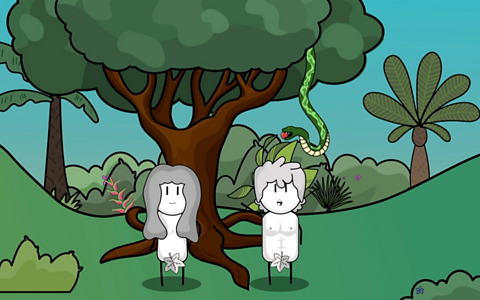Origins of sin
A look at the consequences of Adam and Eve's actions in the Garden of Eden

Many Christians believe that sin is the result of Adam and EveÔÇÖs disobedience to God.
Adam and Eve were the first humans. They were given freedom to do as they liked in the Garden of Eden with one exception. They were forbidden to eat fruit from the tree of knowledge of good and evil.
Satan (the Devil) tempted Eve and then Adam to eat from this tree and rebel against GodÔÇÖs command. Satan said that by eating from the tree they would become like God.
They ate the forbidden fruit. Their punishment from God was to endure suffering in life. This is known as ÔÇÿthe fallÔÇÖ.
By eating from the tree, Christians believe Adam and Eve, and all humanity who came after them, would have knowledge of evil and would be corrupted by it.
This event led to the concept of original sin. This is the belief that all people are born with a nature that is tainted by sin.

Consequences of sin

Adam and EveÔÇÖs choice to disobey God brought wide ranging consequences:
- Humans were distanced from God forever.
- Suffering and death entered the world.
- Human relationships were damaged.
- The physical world was damaged. The created world would no longer function as God intended.

Response to sin
There are two main approaches to human morality:
Absolute morality is an approach where a person sticks to a certain moral standard regardless of the situation. In this approach, the person is often influenced by external laws (secularNot connected with religious or spiritual matters, cultural and religious) such as the Ten Commandments or the laws of the country which they follow in every situation.
Relative Morality is an approach where a person determines the best moral actions based on the circumstances. In this approach, the person will have a generally consistent approach to moral decisions but will allow for this to be broken in certain circumstances if they think it is the best or most compassionate thing to do.
More on Morality and ethics
Find out more by working through a topic
- count7 of 7

- count1 of 7

- count2 of 7

- count3 of 7
